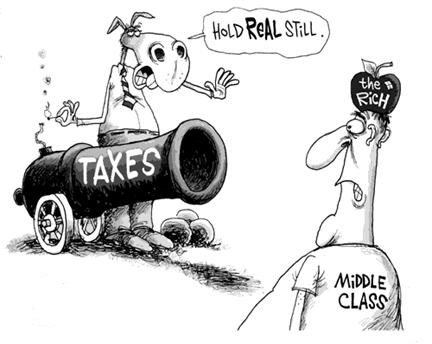Introduction
‘Taxation, Forced Labor and Theft’ addresses the injustice of taxation by analyzing the current tax policies for their illegitimacy since they infringe on the human rights of workers (Feser 220). The approach is based on the moral legitimacy of taxation and the justification of government bodies that are funded using unfairly generated tax. The author, Edward Feser,teaches philosophy at Loyola Marymount University in Los Angeles, California.
The review suggests that most taxation approaches are morally illegitimate and the malpractice within the society regarding unfair taxation is a true reflection that the society has lost its values (Baker 10).

Summary
Feser begins by assessing the approach of taxation based on its legitimacy and establishes the literature surrounding the concept as presented by other scholars. This leads on to the justification of illegitimate tax collection approaches and the justification of the state in using illegitimate methods in tax collection (Chau and Leung 37). The article then analyses the taxation and labor rights approach, to assess whether unfair taxation infringes on property rights
The article then evaluates the aspect of taxation and forced labor by presenting the viewpoint of two renowned scholars who have conducted analysis of the issue. The author concludes by stating that the moral legitimacy of taxation laws is a big dilemma because public agencies are funded by the same taxes generated illegitimately (Keen and Perry 18). Moreover, the society’s morality and values are a reflection of their practices but the legitimacy of taxation is a challenge that should be addressed from the context of the society’s view.
Critique
The author’s use of utility maximization, rights theory and tax policies alongside the evaluation of forced labor and injustice of taxation grants the article credibility, as it is a reflection of other works done in the corresponding field (Lough 10).
Furthermore, the author bases his opinion on past research that has been conducted within the field of labor and welfare and taxation theft. To a large extend, the author enhances the credibility of his work by implementing the knowledge from a personal reflection of the subject. This suggests that the article was developed from in-depth research and displays originality and thoughtful evaluation. However, the author fails to apply appropriate qualitative research approach to enable the reader gain more understanding on the aspects of labor and taxation. The justification of taxation and labor rights is approached from the view of other scholars who have researched on the topic (Montaro 8).
A key positive attribute expressed in the article is that there is balance of arguments that is supported with other works conducted within the field. Forced labor and taxation are described based on their legitimacy, whether they cater for the welfare of employees. Clymer (2007) argues that, “the state does not really steal from us because it provides services in return” (12) The evaluation is based on whether or not state illegitimate taxation can be justified on the argument that taxation sustains the Leviathan state. Another positive aspect of the article is the author’s use of sequential order within the text enabling the reader to easily follow on the relationship between taxation and state fulfillment of its mandate.
A major drawback of the article is the complexity of the language used. The terms and concepts used in the narration are complex for the reader to analyze. Within the article, there are different approaches to forced labor, taxation and theft. However, the author seems to bias his discussion on taxation and gives little attention to the implication of taxation on forced labor and theft (O’Shea, 91).
Conclusion
In conclusion, the article presents a logic and balanced argument on justification of taxation. The author supports his argument with valid evidence, based on the viewpoint of other scholars on the subject. The author has written authoritatively by developing the review based on opinion. The article is backed by numerous sources that the author has used to develop his argument, enhancing its credibility. However, the absence of qualitative research on the subject limits the credibility and authority of the work, I would recommend that the author incorporates more evidence regarding past research to enhance the scope and depth of argument analyzed.
Works Cited
Baker, B. Visiting the Old-age question: Does Money Matter in Education? Albert Shanker
Institute, 2012: 5-32. Print
Chau, G. and Leung, P. A critical review of Fischer tax compliance model: A
research synthesis. Journal of Accounting and Taxation, 1.2, 2009: 34-40. Print
Clymer, J. Tax Management in Companies. Tax Management Review, 1. 44, 2007:3-44
Feser, E. Taxation, Forced Labor and Theft. The Independent Review, 5.2, 2000: 219-235
Keen, M. and Perry, V. Issues in International Taxation and the Role of the IMF. International
Monetary Fund, 28.3, 2013: 3-19. Print
Lough, E. A Step Change in Tax Transparency.Business and Communication Concept, 6.3,
2013:2-19. Print
McClelland, R. A Review of Recent Research on Labor Supply Elasticity. Working Paper
Series Congressional Budget Office, 2012: 1-41. Print
Montaro, E. Tax Responsibility: The business case for making tax a corporate responsibility.
Fair Pensions, 2011: 2-12
O’Shea, C. Double Tax Conventions and compliance with EU law. The EC Tax Journal, 11.2,
2010: 93-102. Print
Parry, I. and Small, K. Does Britain or the United States Have the Right Gasoline Tax?
Resources for the Future, 2.12, 2004: 1-40. Print


